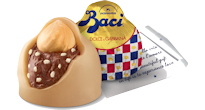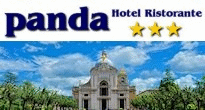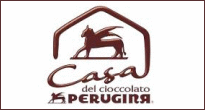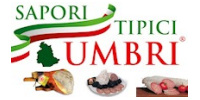Our network:
Tuesday 30 December 2025
Perugino exhibition and the Porziuncola chapel in Santa Maria degli Angeli - Assisi
 |
Assisi loc. S. Maria degli Angeli (Pg).
The Basilica of Santa Maria degli Angeli contains an important work by the Umbrian painter. This is the Crucifixion, what remains of a large Crucifixion that once decorated the simple choir of the Porziuncola chapel, built in 1485. On July 18th 1486 Pietro Perugino is recorded as having been in Assisi, perhaps to finalise agreements with the friars. Sadly the fresco was severely damaged to allow the construction of the 16th century Basilica.
Summer opening hours: 6.15am – 7.45pm, winter opening 6.15am – 12.30pm and 2 – 7.45pm. July/August/September also from 9 to 11pm. On Saturdays throughout the year the chapel opens for Rosary at 9.15pm and for the Aux Flambeaux procession. Info: 075.8112534.
Outskirts of Assisi visit the town of Bettona, Montefalco and Spello also.
BETTONA (Pg).
Pinacoteca Comunale, S.Antonio di Padova and devotee
The small canvas comes from the Bettona Church of Sant'Antonio di Padova, officiated by the Frati Minori dell’Osservanza. It was made for Bartolomeo di Maraglia, lieutenant of Giampaolo Baglioni, who on the 11th February 1512 was taken prisoner in the battle of Marignano by the Frech troops of Gaston de Foix, liberated, he commissioned the painting from Perugino, as the inscription on the lower border reads: “BOTO DE MARAGLIA DA PEROG(I)A QUANDO FO PREGIONE DE FRANCIOSE / CHE FO ADDI XI DE FEBRAIO MDXII PETRUS PINXIT DE CASTRO PLEBIS”,(bartolomeo di maraglia of perugia when he was prisoner of the french/that was the 11th february 1512 pietro painter of città della pieve). At the foot of the saint there is a portrait of the donor dressed in arms. It is probable that the ex-voto was hung against a wall or a pillar of the church so that it resembled a standard, according to a common custom in that period of placing military flags in sacred places.militari.
Madonna della Misericordia, Saints Stefano and Girolamo and donators
The panel was made for the church of Sant'Antonio di Padova by the Minori Observants. The identity of the two devotees kneeling behind the saints is unknown, probably husband and wife. The attribution to Perugino, proposed first by A.Mezzanotte in 1836, and confirmed by style data, places it in the last phase of the painter’s activity.
MONTEFALCO (Pg).
Museum of San Francesco, Natività, in the lunette L’Eterno in gloria tra due angeli and Annunciazione
The fresco completly covers the inner wall facade of a large shrine on the left of the entrance to the Church of the Frati Minori Conventuali. The main story faithfully follows the whole composition of the Nativity painted by Perugino around 1502 for a Francescan Convent of Monteripido of Perugia, in its turn taken from the Nativity of the Collegio del Cambio dated 1500. The Montefalco fresco is the latest of the series and is connected to a documented sojourn of Perugino in this Umbrian town in 1503.
SPELLO (Pg).
Church of Santa Maria Maggiore, Pietà tra i Santi Giovanni Evangelista e Maria Maddalena; Madonna col Bambino tra i Santi Biagio e Caterina d’Alessandria
The two frescoes decorate two small altars on the sides of the high altar and in front of the choir entrance. Perugino came to Spello the 8th March 1521 and the following 13th to draw up a contract with the canons, in which he pledged to finish the work within two months for a sum of 25 gold ducati and hospitality. The altar of the Pietà, to the left, bears in two cartouches, the artists signature and the date 1521: “PETRUS DE CHASTRO PLEB(is) / PINSIT AD MDXXI”; on the base of the throne is the name of the donator:”MICHALA(N)GELUS ANDINE”. The name of the donator also appears on the base of the throne in the right altar:”EXPE(NS) IOANNE BERNADELLI / AD MDXXI DIE XXV APRILIS”.
| Up |
General information
• Assisi World Heritage • Churches
• Associations & Groups
• History
• Tourist Guides and visit guided in Umbria
• General travel tips
• Useful - emergency numbers
• Weather information
• Lyrick Theatre Assisi
• Metastasio Theatre Assisi
• Local opening times
• Churches of Assisi
Transport in town
• Streets of Assisi • Traffic restrictions
• Parking Mojano - historic centre
• Parking (others)
• Buses & Taxis
• Town map
• How to reach Assisi by car
• How to reach Assisi by Train
• How to reach Assisi by Air
Transport out of town
• Airport • Rent-a-car
• Local and national buses
Where to Stay
• Hotel Panda • Holiday Farm Colle degli Olivi
• Map of Hotels in Assisi

Where to eat and drink
• Restaurant Colle degli Olivi • Restaurants Map of Assisi area
Education
• Italian Language School for Foreigners • University
Art and monuments
• The Rocca Maggiore • Temple of Minerva
• Palazzo Capitano del Popolo
• Roman Amphitheatre
Art and religion
• Eremo delle Carceri • The Basilica of St Francis and the Sacro Convento
• The Basilica of Santa Maria degli Angeli
• The Basilica of St Claire
• Abbey of St. Pietro
• St. Damian's Convent
• St. Rufino Cathedral
• Church of Santa Maria Maggiore
• St. Francis of Assisi - 2, 3 and 4 October

News from Assisi
Sorry, non news - i soggetti interessati a far conoscere le iniziative che avranno luogo nell'ambito del territorio comunale sono invitati a darne comunicazione con congruo anticipo utilizzando l'email redazione@umbriaonline.com


What to see & do
• 4th OCTOBER, Feast of San Francesco of Assisi • Italian Language School for foreigners
• Park of Colfiorito
• Perugino exhibition and the Porziuncola chapel in Santa Maria degli Angeli - Assisi
• Golfing holidays
• Assisi Farm Stay Colle degli Olivi
• Sapori Tipici Umbri, buy now
Lake Trasimeno
• General Information Lake Trasimeno • The islands - boat tours Lake Trasimeno
• Eating well by Lake Trasimene
• Where to stay by Lake Trasimene
• Bathing - Lake Trasimeno
• Mooring Lake Trasimeno
• Navigation regulations
• Mercati Ittici
Specials - In & Out of town
• Weddings in Umbria • Wellness in Umbria - Assisi area
• Honeymooning in Umbria

Typical products
• Sapori Tipici Umbri • Norcia Ham IGP
• Mushrooms selling
• Truffles selling
• Extra Virgin Olive Oil selling
• Wine selling
Museums and galleries
• The Porziuncola Museum • Cathedral Museum and Crypt of St Rufino
• Municipal Art Gallery
• Treasure Museum & F.M. Perkins Collection
• Civic Museum & Roman Forum
Art and tourist attractions
• Forest of Saint Francis - Assisi - FAI • Along Via San Francesco
• Park of Mount Subasio
• The Calendimaggio :
the Ides of May Festivity







